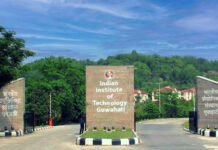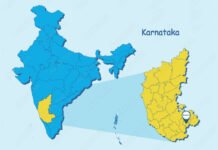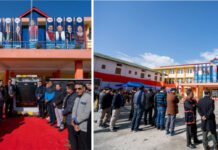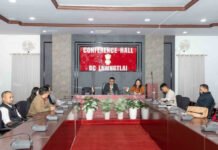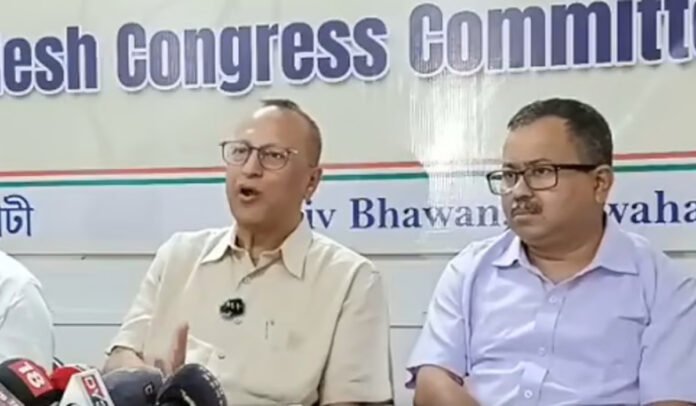The Assam Pradesh Congress Committee (APCC) on Monday accused the state government of misrepresenting facts about the Narengi-Kuruwa bridge project, stating that the foundation stone for the bridge had already been laid by the late former Chief Minister Tarun Gogoi on March 1, 2016. This claim came during a press meet at Rajiv Bhawan in Guwahati, where Congress leaders challenged the recent foundation stone laying by Prime Minister Narendra Modi.
Congress leader Pradyut Bordoloi said that while the Prime Minister laid a foundation stone for the Narengi-Kuruwa bridge during his latest visit, the project actually dates back nearly a decade. “Perhaps Chief Minister Himanta Biswa Sarma forgot to inform the Prime Minister,” Bordoloi remarked, implying the government’s announcement was redundant and politically motivated.
The Narengi-Kuruwa bridge, a 2.9-kilometer structure, is expected to cost approximately ₹1,200 crore. Its construction is seen as part of the state’s wider infrastructure development and connectivity agenda. The project was one among several initiatives inaugurated by the Prime Minister during his recent visit to Assam, which also included high-cost health, energy, and transport sector schemes.
Bordoloi also criticized other parts of Modi’s speeches, including remarks claiming that Congress had aligned with Pakistan during Operation Sindoor. He pointed out what he called a double standard, citing that despite strong public opposition, certain sporting events involving Pakistan were allowed in Assam, facilitated by politically connected individuals.
He further contended that while Congress had long demanded equitable development for northeastern states including Assam, the ruling government appears to use infrastructure announcements for political optics. “After two years and six months of ethnic violence in Manipur, we never saw a visit from the Prime Minister until now,” Bordoloi said. He said this belated attention coinciding with the birth centenary of cultural icon Bhupen Hazarika seems timed for political effect.
Responding to these claims, government representatives have defended the latest laying of the foundation as a fresh formal process, with updated plans, revised engineering designs, and possibly different funding and contractual arrangements. However, Congress demands that the record clearly reflect the 2016 foundation event, lest public memory be distorted.
The controversy underscores Assam’s sensitive political atmosphere, where public infrastructure projects often become flashpoints between ruling and opposition parties. The Narengi-Kuruwa bridge, being significant in improving urban and peri-urban connectivity, has importance beyond logistics—its politics are closely watched by local media and citizens alike.
As Assam prepares for further development announcements, Congress leaders have demanded transparency in how projects are recorded, funded, and publicized. They insist that updates to existing work should not be presented as new initiatives. For its part, the government is expected to issue clarifications and possibly release archival documentation to substantiate its claims.




